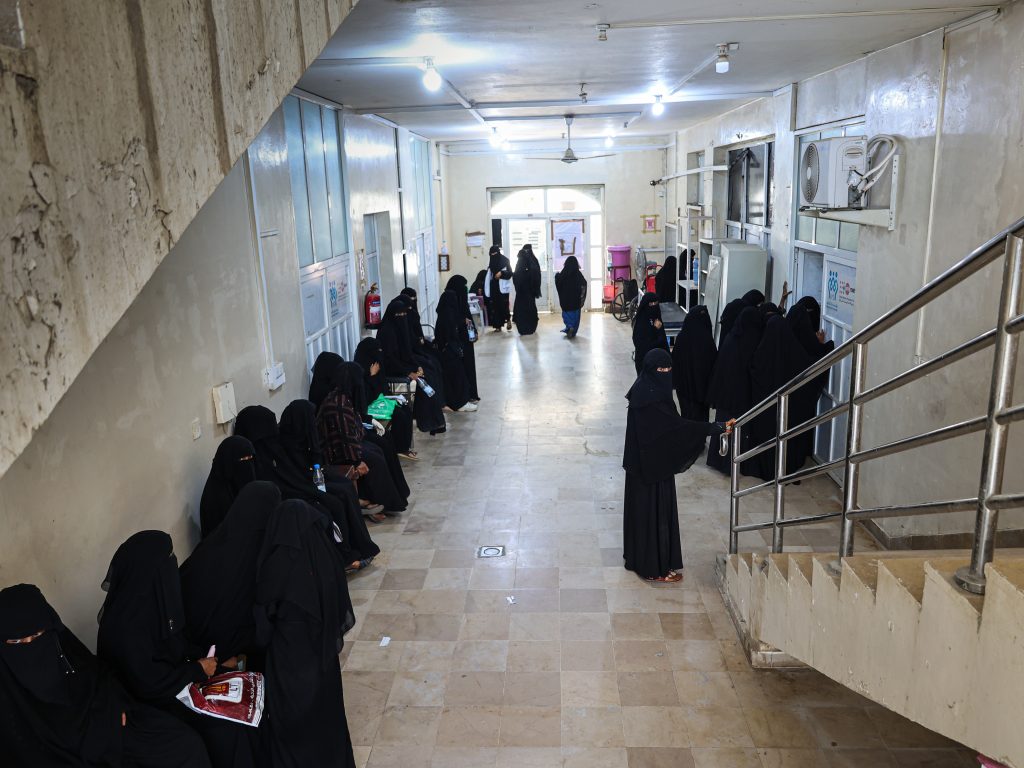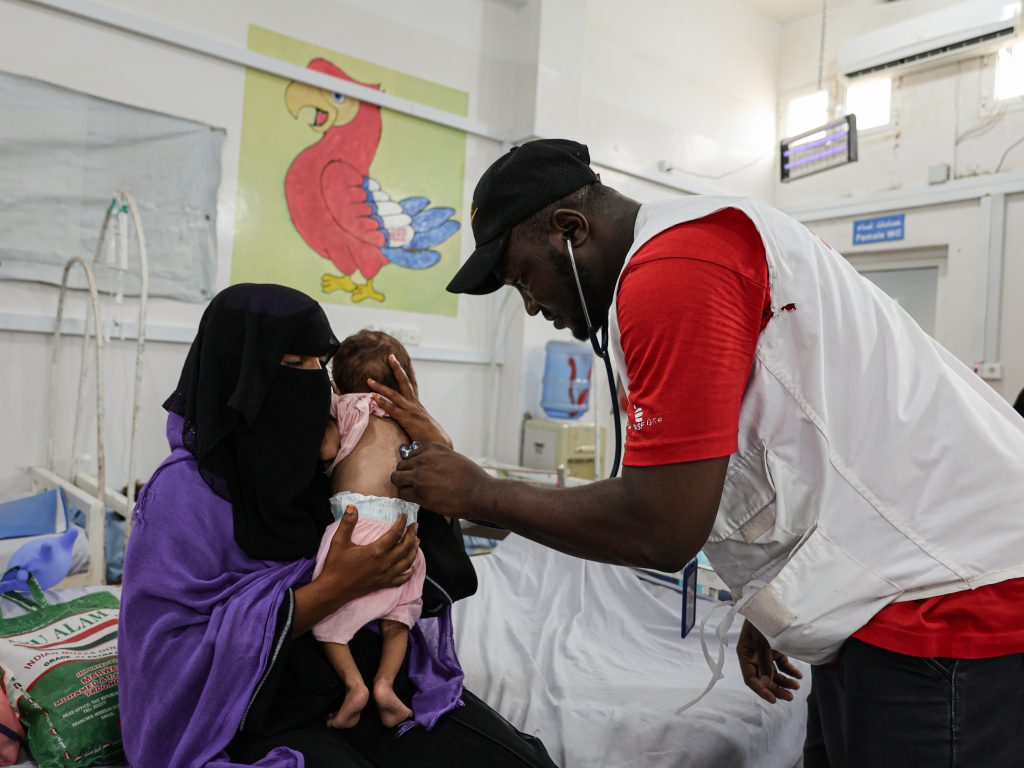Médecins Sans Frontières (MSF) expresses profound concern over the alarming rise in malnutrition cases among mothers in Yemen over the past two years. The situation reflects the dire humanitarian crisis facing the country, exacerbated by protracted conflict, economic instability, and diminished access to essential services.
The story of Mayasa, a mother grappling with the relentless cycle of malnutrition afflicting her son Mohammad, underscores the gravity of the situation. Despite her unwavering efforts to secure medical care for her child, Mayasa herself now faces the specter of malnutrition, compromising her health and that of her unborn child.
MSF’s medical teams operating in Yemen have witnessed a disturbing trend: an increasing number of mothers admitted to health facilities are malnourished, with the severity of cases escalating rapidly. In just two years, the percentage of malnourished women admitted for maternity care has surged, painting a grim picture of the deteriorating health landscape.

The underlying causes of this crisis are multifaceted and deeply entrenched. Persistent conflict, economic collapse, and dwindling food aid distributions have precipitated a catastrophic decline in food security, leaving families struggling to secure basic sustenance. Moreover, limited access to healthcare exacerbates the challenges faced by pregnant women, depriving them of vital antenatal and postnatal care services.
MSF emphasizes the urgent need for targeted interventions to address the escalating malnutrition crisis among mothers and children in Yemen. Comprehensive nutrition and food assistance programs must be implemented, with a particular focus on the most vulnerable populations, including children under five, pregnant women, and new mothers.

Furthermore, efforts to raise awareness about the critical importance of breastfeeding in mitigating the risk of malnutrition must be intensified. By prioritizing the needs of those most affected and bolstering community education initiatives, we can strive towards mitigating the devastating impact of malnutrition on Yemeni families.
As Yemen continues to grapple with the compounding challenges of conflict and humanitarian crisis, MSF remains steadfast in its commitment to providing vital medical care to those in need. Together with our partners and stakeholders, we stand united in our resolve to alleviate the suffering of Yemeni mothers and children afflicted by malnutrition.
Midwife Nadia Abdallah answers three questions about the malnutrition cases they’re observing in the maternity ward in Abs general hospital in Yemen.











